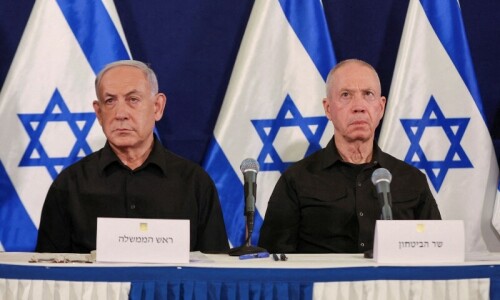The International Criminal Court (ICC) recently emphasised the responsibility of its 124 member states to put in force arrest warrants in opposition to Israeli Prime Minister Benjamin Netanyahu and former Defense Minister Yoav Gallant. These warrants, issued through ICC Prosecutor Karim Khan, relate to alleged conflict crimes and crimes in opposition to humanity stemming from the conflict in Gaza. While Israel is not a member of the ICC, the warrants should have great implications across the world, restricting tours for those named and raising questions about worldwide justice standards.
What Do the Arrest Warrants Mean?
The ICC’s flow objectives high-profile individuals for alleged actions during current conflicts in Palestine, which include airstrikes in Gaza and reported human rights violations. The courtroom asserts jurisdiction based on Palestine’s membership and crimes committed inside its territory. This situation underscores the challenges of enforcing international law when state actors, like Israel, oppose such interventions.
Global Responses to the ICC’s Call
The name for compliance has sparked numerous reactions:
- Supporters of Accountability: Several nations and human rights organisations have applauded the ICC for taking a stand against impunity, urging all member states to uphold their obligations.
- Criticism from Opponents: Israel and allied countries, which includes the United States, have criticised the move, claiming it politicizes the ICC and undermines its legitimacy.
The Path Ahead for International Justice
The enforcement of these warrants remains uncertain, as the ICC lacks its policing authority and relies on member states’ cooperation. This reliance raises questions about the feasibility of holding powerful state leaders accountable under international law. However, this action highlights growing calls for impartial accountability in protracted conflicts.
By addressing each of the support and resistance surrounding those warrants, the ICC’s movements show the complexity of achieving justice in an interconnected international. The evolving reaction to these tendencies might be crucial in shaping the destiny of worldwide accountability.
Political and Legal Implications of ICC Warrants
The ICC’s selection of problem warrants against Israeli officers marks a bold step in global regulation enforcement, raising vast political and prison questions. For Israel, the warrants are seen as a direct threat to its sovereignty and policies in occupied Palestinian territories. Israeli officials have rejected the ICC’s jurisdiction, calling the research biased and politically inspired. These trends spotlight the anxiety about national sovereignty and global judicial oversight.
The Role of ICC Member States
ICC member states play a critical role in enforcing arrest warrants. By international law, these countries are obligated to detain and extradite individuals named in ICC warrants if they enter their jurisdiction. However, geopolitical realities often influence compliance. For example, allies of Israel, including the USA and several European countries, may face enforcement because of diplomatic concerns, undermining the court docket’s effectiveness.
Challenges in Enforcement
Enforcing these warrants is fraught with demanding situations.
- Jurisdictional Disputes: Israel, as a non-member of the ICC, contests the courtroom’s authority over its nationals.
- Political Resistance: Global powers opposing ICC actions can discourage member states from cooperating.
- Lack of enforcement mechanisms: Without its policing authority, the ICC is predicated on the willingness of states to behave.
Despite these hurdles, the warrants symbolize a dedication to addressing alleged crimes in Gaza and underscore the principle that no person is above the regulation.
Broader Impacts on the Israel-Palestine Conflict
The ICC’s movements should impact the dynamics of the Israel-Palestine battle. For Palestinians, this development is seen as a step towards the global reputation of their plight and an opportunity to hold perpetrators accountable. Conversely, for Israel, it may heighten diplomatic isolation and deepen tensions with states that aid ICC movements.
The issuance of arrest warrants also influences the broader discourse on international justice. It challenges the perception of selective accountability in global law enforcement, particularly regarding powerful nations and their allies. This step, although symbolic for now, may want to encourage other worldwide bodies to adopt greater assertive stances towards alleged conflict crimes globally.
Conclusion
The ICC prosecutor’s name for compliance with Israeli arrest warrants underscores the complexities of global regulation enforcement. While the route to justice is fraught with political and logistical boundaries, the court docket’s movements constitute a growing call for accountability in lengthy-standing conflicts. Whether member states will heed this name remains to be seen; however, the spotlight on those instances may want to drive the meaningful discourse on upholding justice in a polarized global.
This improvement highlights the vital function of worldwide cooperation in advancing duty and justice. As the world watches, the moves of ICC member states will decide the destiny trajectory of worldwide law and its capability to confront impunity efficaciously.
